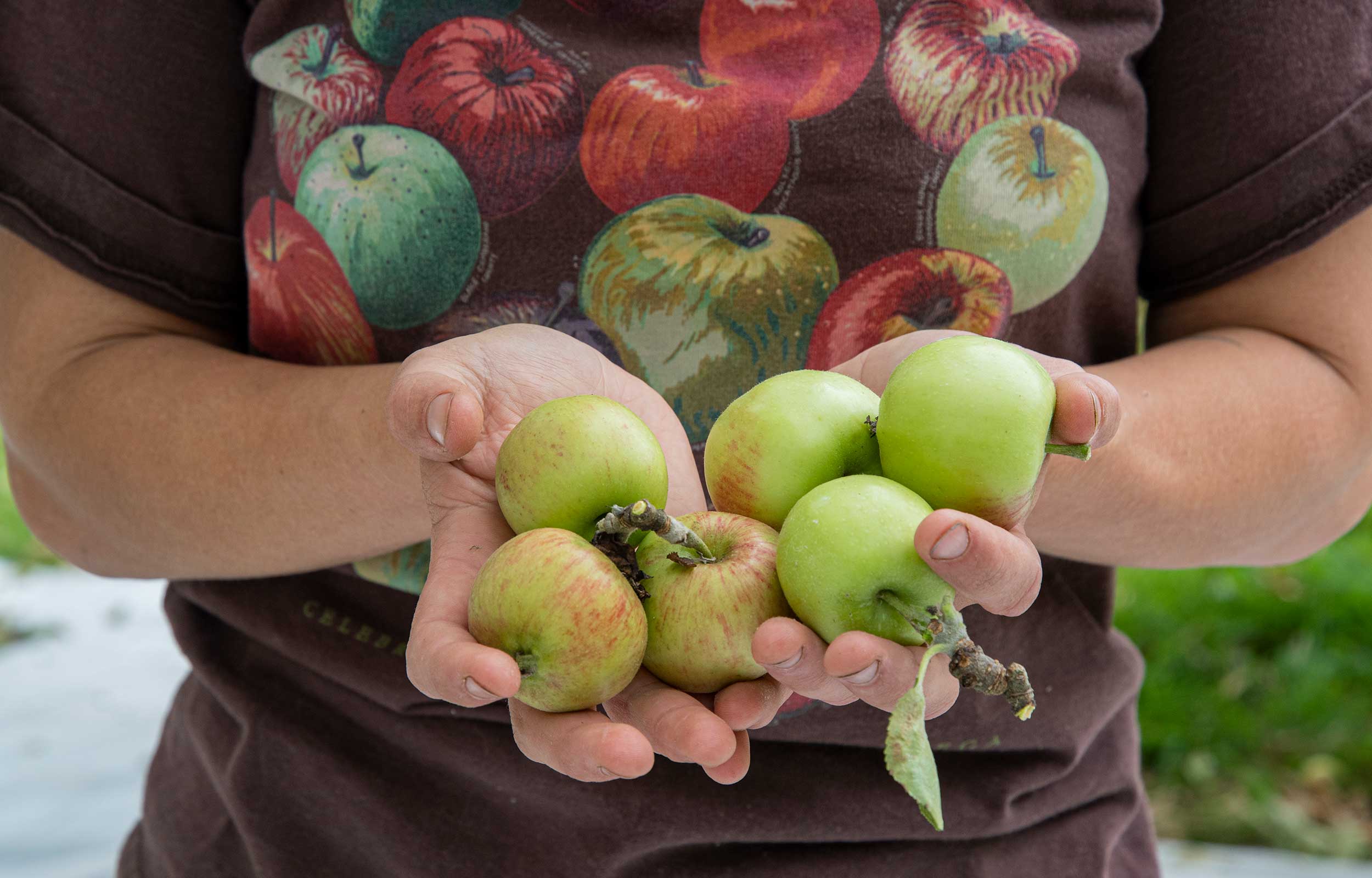
After apple picking last fall at URI’s East Farm
All four of Bridget Craig’s grandparents were farmers, which instilled in her a longtime interest in agriculture and the nation’s food system.

“I’ve always been interested in the history of food, how people eat, and why food matters so much to people,” the Providence resident said shortly after graduating from URI last month. “From there, I got curious about where our food is grown, why there, and why people grow particular foods. It’s all about the interactions between culture, ecology, and language.”
These questions drove Craig to study sustainable agriculture and food systems at URI, combined with a major in animal science, which now finds her pursuing a career researching sustainable methods of raising farm animals.
The growing recognition that the 20th century’s industrial approach to farming and food production is unhealthy for people, animals, and the environment—and is environmentally and economically unsustainable—has led to a growing interest in URI’s major in sustainable agriculture and food systems. The innovative course of study combines food production with classes in business, health sciences, nutrition, policy, economics, and more. Students in the program learn that an interdisciplinary approach to practical agriculture is the way forward for the new generation of farmers and food producers.
Graduates might end up working in small- or large-scale food production (on land or sea), finding innovative and safe ways to distribute and market food, or developing and enforcing policies that ensure food security and safety, among many other options.
The program’s new Multicultural Scholars initiative aims to diversify the workforce in food-related industries by offering qualified students a four-year scholarship, plus summer research opportunities, attendance at academic conferences, and other support.
“I really liked the hands-on opportunities we had in our classes, like growing vegetables hydroponically,” said Craig, who was a member of the University’s livestock judging team. “And I liked how it was easy to build a relationship with each professor, to get to know their teaching style and personal philosophies on the subject. It let me be more creative and thoughtful about my own beliefs.”
Beyond the academic program, URI showcases its agricultural expertise each year by hosting an annual Food Summit that brings together hundreds of government, business, and academic leaders for discussions about how to better support the state’s food economy. This year’s food summit, “Taking the Lead: Improving Food Access in a Global Pandemic,” will be a virtual event on January 20. And the University’s new Food Center will soon provide students with opportunities to network with the sustainable agriculture industry and gain practical experience in the food sector.
URI’s academic program in sustainable agriculture and food systems, the Food Summit, and other related initiatives are all geared to a more resilient food system for the future. The sooner, the better.
